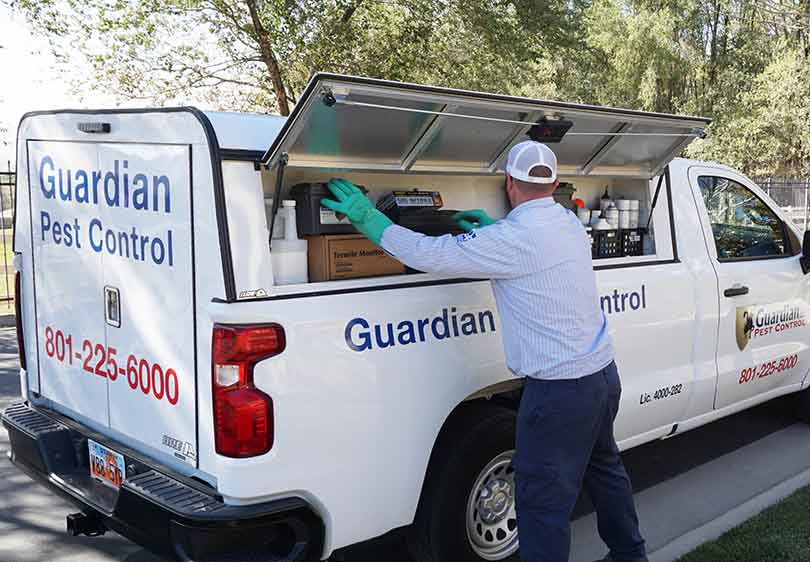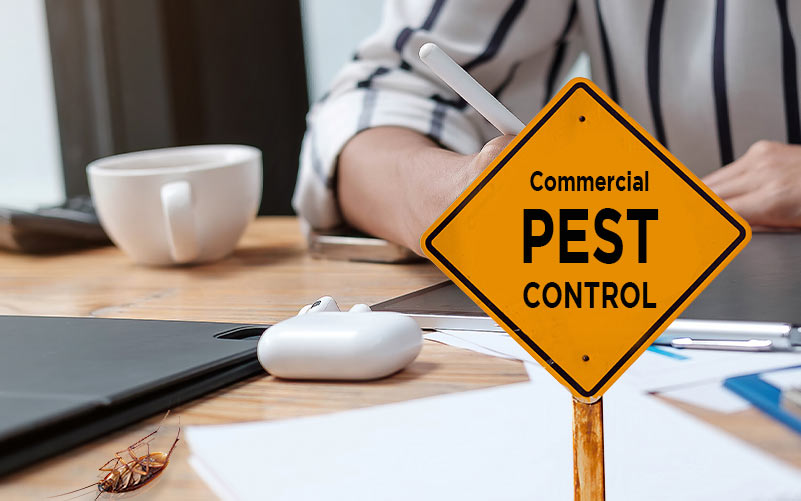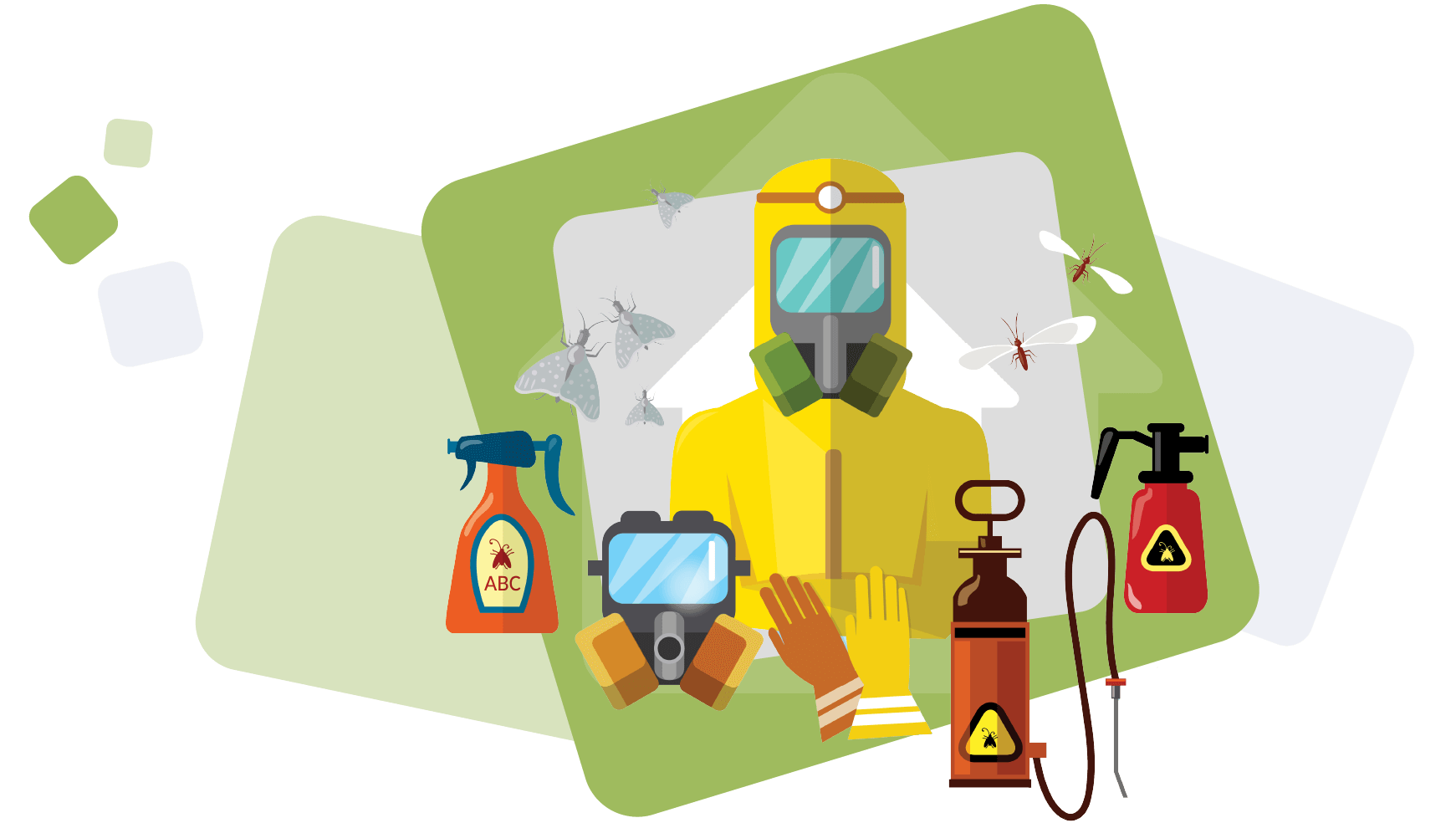Rest Easy with Orem Pest Control: Reliable Protection Versus Pest Intrusions
Rest Easy with Orem Pest Control: Reliable Protection Versus Pest Intrusions
Blog Article
Uncovering the Different Kinds of Parasite Control Techniques and Their Applications
Pest control is an important element of maintaining a secure and healthy atmosphere, whether it be in domestic, business, or farming settings. Numerous strategies have actually been established and improved over the years to efficiently minimize and handle pest infestations. From chemical approaches that target details bugs to biological methods that harness all-natural killers, the realm of pest control is diverse and substantial. Comprehending the different types of parasite control strategies and their applications is necessary for executing the most ideal and sustainable services. Allow's check out the intricacies of these approaches and just how they can be successfully utilized to resolve pest-related difficulties.
Chemical Insect Control Strategies
Chemical insect control methods are extensively used in agriculture and pest administration to effectively eliminate or regulate pest infestations. These techniques entail using chemical compounds, such as pesticides, chemicals, and herbicides, to lower or eliminate insect populations that present a hazard to crops, animals, or human health. Pesticides, as an example, target certain parasites like rodents, insects, or weeds, disrupting their life process or triggering direct harm upon get in touch with. Herbicides are particularly created to regulate undesirable plant life that competes with crops for nutrients and resources. Pesticides, on the various other hand, are made use of to fight insect bugs that can harm crops and transmit diseases.
While chemical pest control strategies can be highly efficient in taking care of pest populations, they likewise raise concerns regarding potential ecological and health dangers. It is important to adhere to safety and security guidelines, use incorporated pest administration approaches, and consider alternative approaches to decrease the adverse impacts of chemical parasite control strategies.
Biological Pest Control Methods
 Biological pest control methods utilize living organisms to take care of and minimize parasite populaces in a sustainable and eco pleasant fashion. One typical method is the launch of ladybugs to fight aphids in gardens, as ladybugs are all-natural predators of these damaging insects.
Biological pest control methods utilize living organisms to take care of and minimize parasite populaces in a sustainable and eco pleasant fashion. One typical method is the launch of ladybugs to fight aphids in gardens, as ladybugs are all-natural predators of these damaging insects.
Organic pest control techniques use numerous advantages over chemical techniques. They are typically much safer for the setting, as they do not leave hazardous deposits or add to pollution. Furthermore, these approaches are frequently a lot more targeted, influencing only the bug varieties without hurting advantageous pests or other microorganisms. In addition, biological control can be a long-lasting solution, as the presented microorganisms can develop lasting populations and give continuous pest administration. In general, organic parasite control methods present a natural and reliable option to typical chemical therapies, advertising a well balanced community and much healthier environments.
Physical Bug Control Approaches
Utilizing physical approaches to manage pests entails the use of mechanical or non-chemical methods to alleviate and manage parasite invasions efficiently. These approaches rely on physical barriers, catches, and other strategies to discourage and remove insects without using dangerous chemicals. One usual physical insect control approach is the installation of internet, displays, or fences to block parasites from getting in particular areas. This method is specifically efficient in shutting out pests and little animals from gardens or structures.
One more physical technique is using catches, such as snap traps for rodents or pheromone traps for pests. These traps goal to capture bugs without posing any danger to human beings or the environment. In addition, physical control methods can include methods like handpicking insects off plants, utilizing vacuum cleaner tools to get rid of insects, or employing warm treatments to remove bed insects and other bugs in plagued locations.
Integrated Parasite Management Techniques
Implementing a holistic method to pest administration, Integrated Insect Management (IPM) techniques aim to integrate different efficient strategies to protect against and control pest infestations while decreasing ecological effect and making certain sustainable bug control techniques. IPM entails the assimilation of numerous control methods such as biological control, social methods, mechanical control, and the cautious use pesticides.

Additionally, IPM highlights the significance of surveillance and evaluating pest populations to figure out one of the most suitable control methods. By applying IPM strategies, insect control initiatives come to be extra targeted and efficient, decreasing the dangers connected with too much pesticide use and promoting long-lasting parasite management options.
Natural and Organic Insect Control Options

One prominent natural bug control technique is neem oil, acquired from the seeds of the neem tree, which functions as a repellent and interrupts the growth and development of insects. Diatomaceous planet, an all-natural silica-based powder, is an additional efficient organic bug control alternative that functions by drying out bugs upon contact. By including all-natural and organic pest control alternatives into pest management approaches, people can effectively regulate pests while decreasing harm to the setting and advertising sustainable methods.
Verdict
In conclusion, various insect control methods such as chemical, organic, physical, incorporated parasite monitoring, and natural alternatives are available for efficiently handling bug problems. Each approach has its own advantages and applications depending upon the type of bug and the atmosphere. By recognizing the various kinds of parasite control techniques and their applications, individuals can make educated choices on one of the most ideal technique to control parasites and protect their home.
Chemical pest control methods are extensively used in agriculture and insect administration to properly eradicate or control pest infestations - Orem Pest Control. Natural weblink pest control methods involve using biological control agents, such as parasites or killers, to take care of parasite populaces. By including organic and natural pest control options into parasite monitoring approaches, people can successfully regulate bugs while decreasing damage to the atmosphere and promoting sustainable techniques
In final thought, different insect control strategies such as chemical, biological, physical, incorporated insect administration, and natural alternatives are readily available for successfully managing parasite infestations. By comprehending the various types of pest control strategies and their applications, people can make informed choices on the most suitable strategy to control parasites and safeguard their building.
Report this page